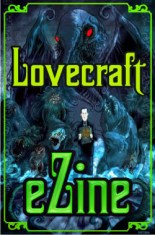[Date: 2012-10-09]

Science fiction can transport readers to other worlds and to imaginings of what the future may be like. In many cases, the settings are purely fantastical, while in others, they present eerily accurate predictions of the future. Tanks and space shuttles were mentioned well before they physically existed. The same can be said of computer tablets, video phone conferencing, virtual reality games, gesture-based computer interfaces and even the office cubicle. But perhaps more importantly, science fiction can also inspire the young generation to work in the sciences. But according to a study conducted by the University of Valencia in Spain, it’s an opportunity that is not being utilised to its full potential.
‘A current concern is that students are no longer studying science and engineering, and this trend is more common amongst females. Science fiction can be useful in awaking the scientific vocation of younger students,’ explained Jordi Solbes Matarredona, researcher at the University of Valencia and co-author of the study published in the journal Enseñanza de las Ciencias.
Jordi Solbes along with Fanny Petit submitted a questionnaire to 173 students at four different state and grant-maintained schools in both rural and urban areas with the aim of understanding the level of science fiction knowledge and its acceptance in schools. They noted a total of 578 specific references to science fiction culture. The most important mentions by number were ‘Stars Wars’, ‘The Matrix’, ‘X-Men’, ‘I, Robot’, ‘Spider-Man’ and ‘The Day after Tomorrow’.
‘In addition, there were 78 references that demonstrated confusion between science fiction and magic, action and adventure, since the likes of “Harry Potter” and “The Lord of the Rings” were mentioned … along with the “The NeverEnding Story” and “Mission Impossible”, ‘ outlines Solbes. Unfortunately, several classic films of the genre were hardly mentioned: ‘Planet of the Apes’ had nine mentions, ‘2001, A Space Odyssey’ had two, and ‘Blade Runner’ was not mentioned at all.
Despite this poor showing, some 24 % of the respondents viewed science fiction in a positive light, and 31% spoke of advances in both science and technology. Furthermore, 47% had a positive outlook on scientists, 35% had a distorted or exaggerated outlook and 12% had an unfavourable outlook. Negative comments described scientists as ‘selfish’, as ‘people who want to rule the world’ and ‘spend their life in the lab’ upholding the typical image of the ‘crazy scientist’.
For more information, please visit:
University of Valencia:
http://www.uv.es/uvweb/universidad/en/universidad-valencia-1285845048380.html
Enseñanza de las Ciencias:
http://dialnet.unirioja.es/servlet/revista?codigo=497





